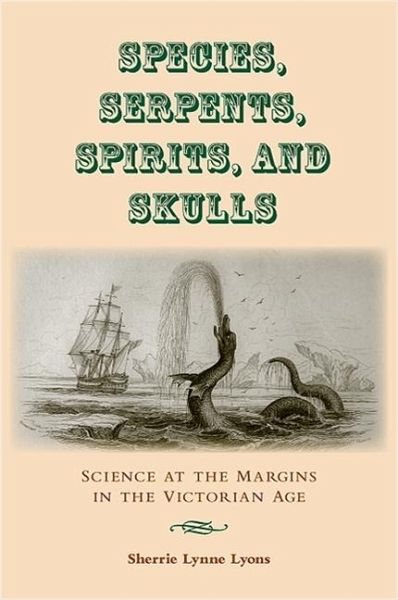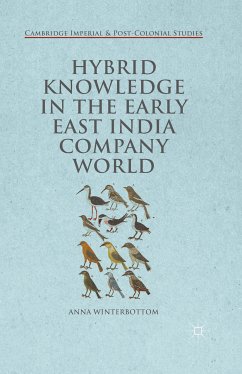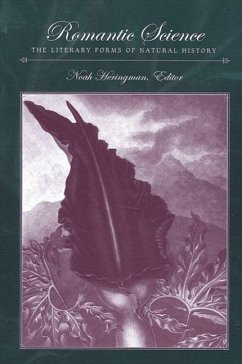
Species, Serpents, Spirits, and Skulls (eBook, PDF)
Science at the Margins in the Victorian Age
Versandkostenfrei!
Sofort per Download lieferbar
25,95 €
inkl. MwSt.
Weitere Ausgaben:

PAYBACK Punkte
13 °P sammeln!
Explores the distinctions between science and pseudoscience.Science permeates nearly every aspect of our lives, and yet, as current debates over intelligent design, the causes of global warming, and alternative health practices indicate, the question of how to distinguish science from pseudoscience remains a difficult one. To address this question, Sherrie Lynne Lyons draws on four examples from the nineteenth century-sea serpent investigations, spiritualism, phrenology, and Darwin's theory of evolution. Each attracted the interest of prominent scientists as well as the general public, yet thr...
Explores the distinctions between science and pseudoscience.
Science permeates nearly every aspect of our lives, and yet, as current debates over intelligent design, the causes of global warming, and alternative health practices indicate, the question of how to distinguish science from pseudoscience remains a difficult one. To address this question, Sherrie Lynne Lyons draws on four examples from the nineteenth century-sea serpent investigations, spiritualism, phrenology, and Darwin's theory of evolution. Each attracted the interest of prominent scientists as well as the general public, yet three remained at the edges of scientific respectability while the fourth, evolutionary theory, although initially regarded as scientific heresy, ultimately became the new scientific orthodoxy. Taking a serious look at the science behind these examples, Lyons argues that distinguishing between science and pseudoscience, particularly in the midst of discovery, is not as easy as the popular image of science tends to suggest. Two examples of present-day controversies surrounding evolutionary psychology and the meaning of fossils confirm this assertion. She concludes that although the boundaries of what constitutes science are not always clear-cut, the very intimate relationship between science and society, rather than being a hindrance, contributes to the richness and diversity of scientific ideas. Taken together, these entertaining and accessible examples illuminate important issues concerning the theory, practice, and content of science.
Science permeates nearly every aspect of our lives, and yet, as current debates over intelligent design, the causes of global warming, and alternative health practices indicate, the question of how to distinguish science from pseudoscience remains a difficult one. To address this question, Sherrie Lynne Lyons draws on four examples from the nineteenth century-sea serpent investigations, spiritualism, phrenology, and Darwin's theory of evolution. Each attracted the interest of prominent scientists as well as the general public, yet three remained at the edges of scientific respectability while the fourth, evolutionary theory, although initially regarded as scientific heresy, ultimately became the new scientific orthodoxy. Taking a serious look at the science behind these examples, Lyons argues that distinguishing between science and pseudoscience, particularly in the midst of discovery, is not as easy as the popular image of science tends to suggest. Two examples of present-day controversies surrounding evolutionary psychology and the meaning of fossils confirm this assertion. She concludes that although the boundaries of what constitutes science are not always clear-cut, the very intimate relationship between science and society, rather than being a hindrance, contributes to the richness and diversity of scientific ideas. Taken together, these entertaining and accessible examples illuminate important issues concerning the theory, practice, and content of science.
Dieser Download kann aus rechtlichen Gründen nur mit Rechnungsadresse in A, D ausgeliefert werden.













